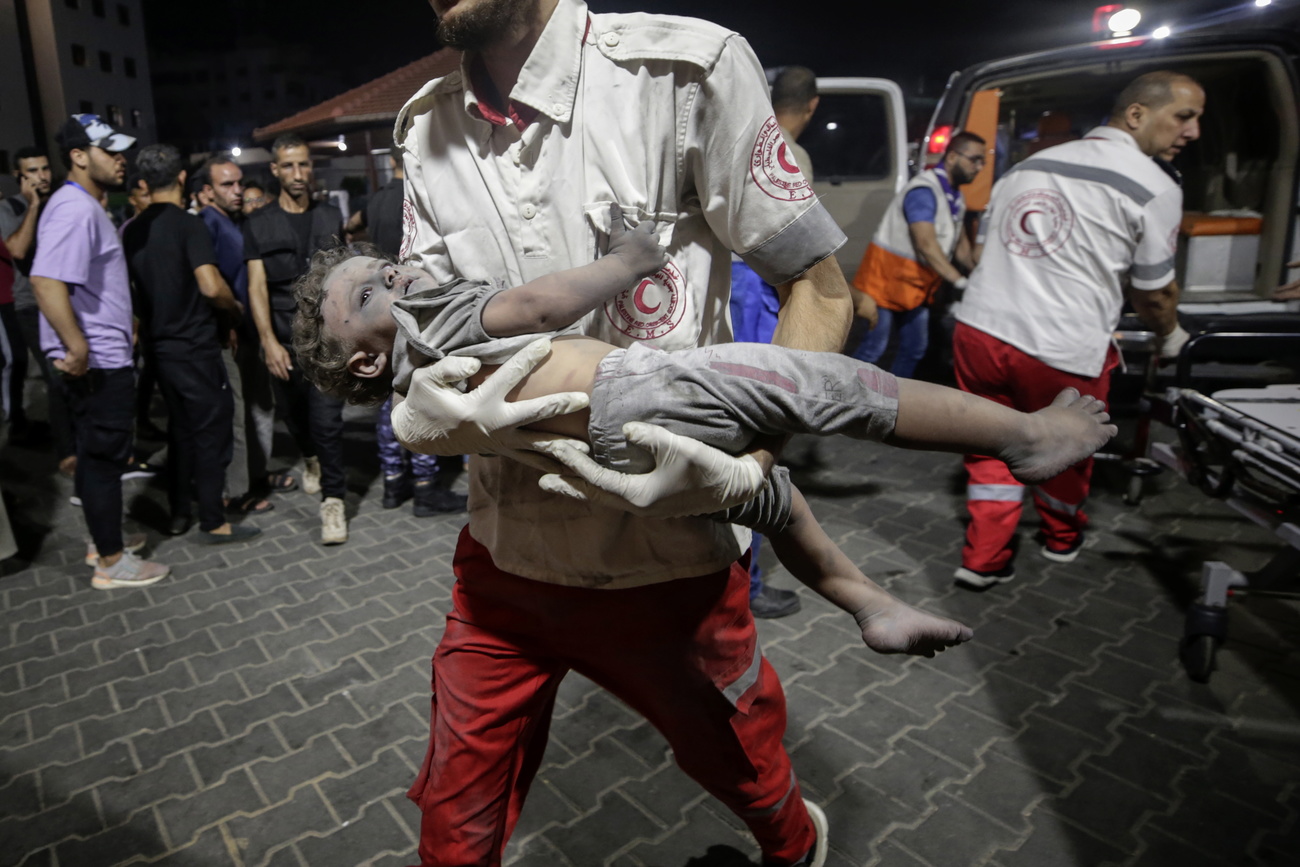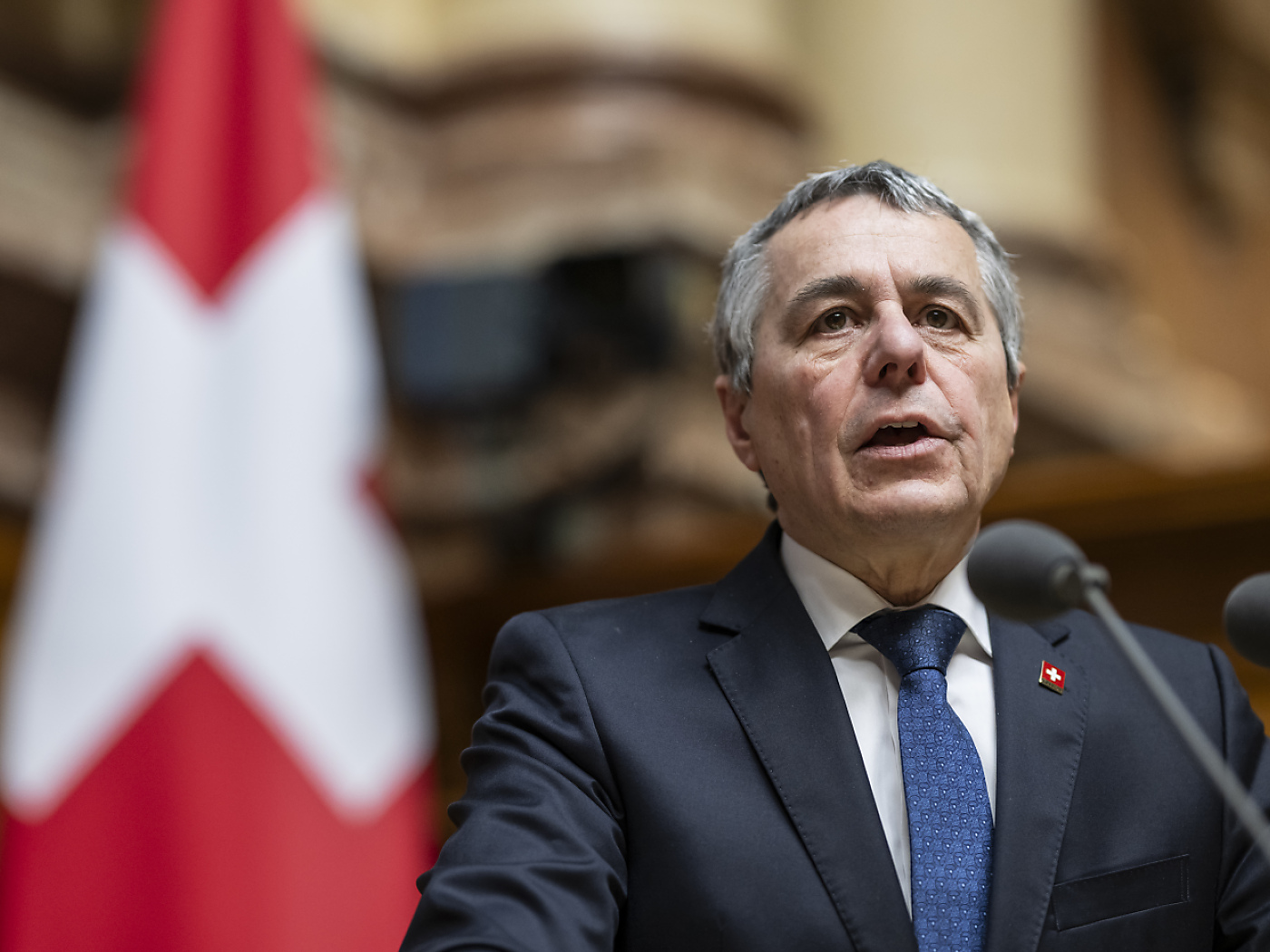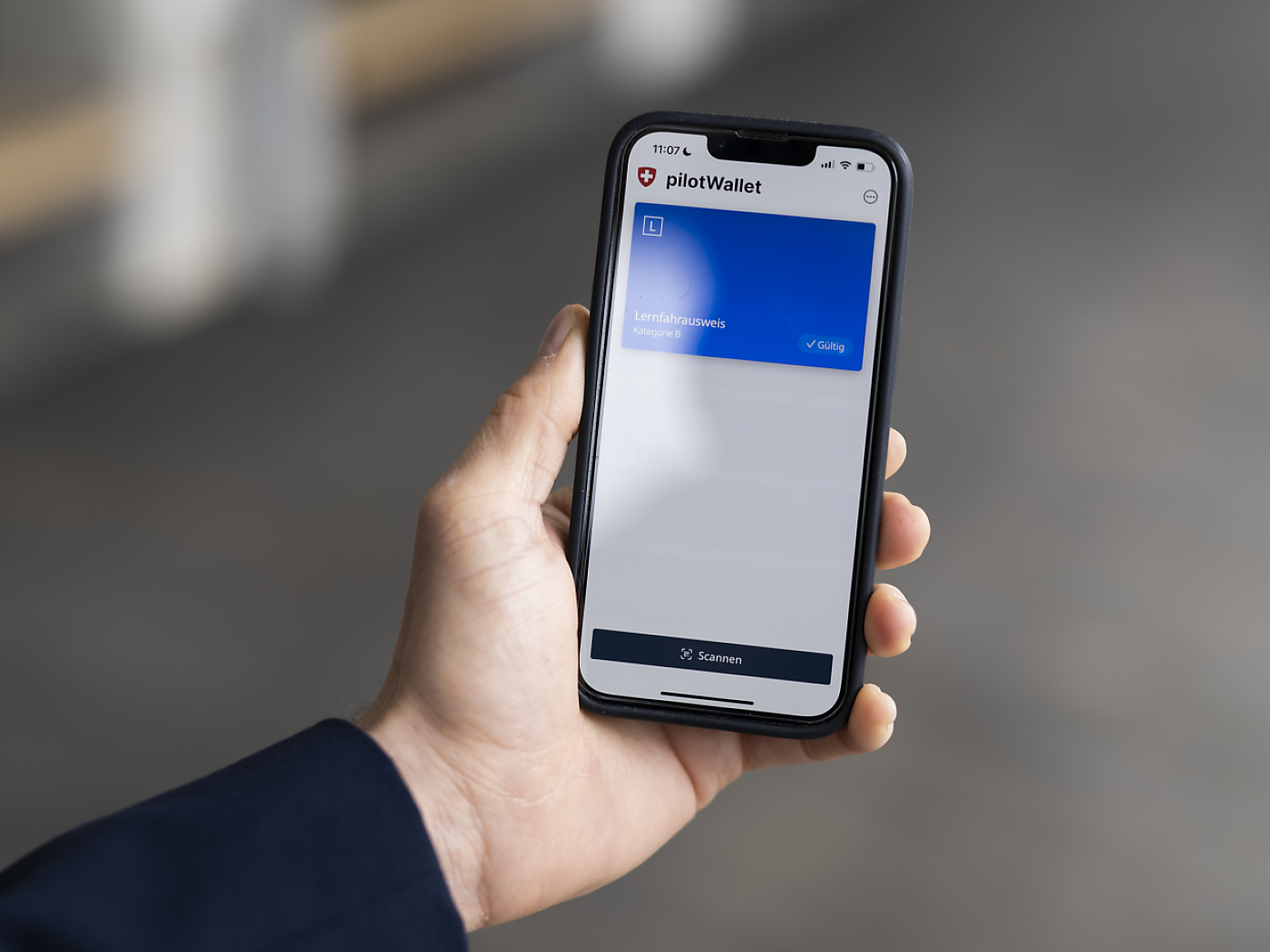Red Cross in contact with Hamas and Israel to free hostages

The International Committee of the Red Cross (ICRC) is in contact with Hamas and Israel to try to facilitate the release of hostages taken into Gaza, the Geneva-based humanitarian organisation said on Thursday.
The ICRC fears that the humanitarian situation inside the Gaza Strip will very quickly become “unmanageable”.
“As a neutral intermediary we stand ready to conduct humanitarian visits; facilitate communication between hostages and family members; and to facilitate any eventual release,” Fabrizio Carboni, ICRC’s regional director for the Near and Middle East, said in a statement.
In a press briefing, Carboni said the ICRC was in sustained, daily contact with Hamas.
+ Israeli-Palestinian war revives Hamas debate in neutral Switzerland
However, he declined to go into details as to whether the organisation knew the whereabouts of those being held, respecting the ICRC’s tradition of discretion.
Hostage-taking is forbidden under international humanitarian law, and anyone detained must be released immediately, Carboni added.
+ Hundreds of Israelis gather in Geneva
At least 150 Israelis and foreigners — including soldiers, civilians, children and women — have been held hostage in the Gaza Strip since Hamas’s surprise Saturday attack on Israel.
Turkish President Recep Tayyip Erdogan has begun negotiations with Hamas with a view to obtaining the release of the hostages, an official source told AFP on Wednesday evening.
Fabrizio Carboni said he was also also concerned about the fate of civilians in the Gaza Strip, which is being bombarded relentlessly by the Israeli armed forces in response to the Hamas attack. The war has already claimed several thousand lives since Saturday.
Israel has declared a total blockade of this narrow, overpopulated territory – home to more than two million people – cutting off water, electricity and gas supplies.
Carboni explained that although the ICRC had stocks of certain basic necessities such as petrol for electric generators and chlorine for the water distribution network, the incessant bombardments were making it impossible to distribute them.
“The security situation does not allow us to move around freely,” he stressed.
“We have no choice, if there is an agreement (to guarantee the safety of humanitarian workers), but to trust”, he acknowledged, while five members of the International Federation of Red Cross and Red Crescent Societies (IFRC) network have been killed since the start of hostilities.
Carboni insisted on the need to open a humanitarian corridor – which has also been called for by the UN – to bring in essential goods, medical supplies and fuel to produce electricity.
This news story has been written and carefully fact-checked by an external editorial team. At SWI swissinfo.ch we select the most relevant news for an international audience and use automatic translation tools such as DeepL to translate it into English. Providing you with automatically translated news gives us the time to write more in-depth articles. You can find them here.
If you want to know more about how we work, have a look here, and if you have feedback on this news story please write to english@swissinfo.ch.

In compliance with the JTI standards
More: SWI swissinfo.ch certified by the Journalism Trust Initiative


















You can find an overview of ongoing debates with our journalists here . Please join us!
If you want to start a conversation about a topic raised in this article or want to report factual errors, email us at english@swissinfo.ch.